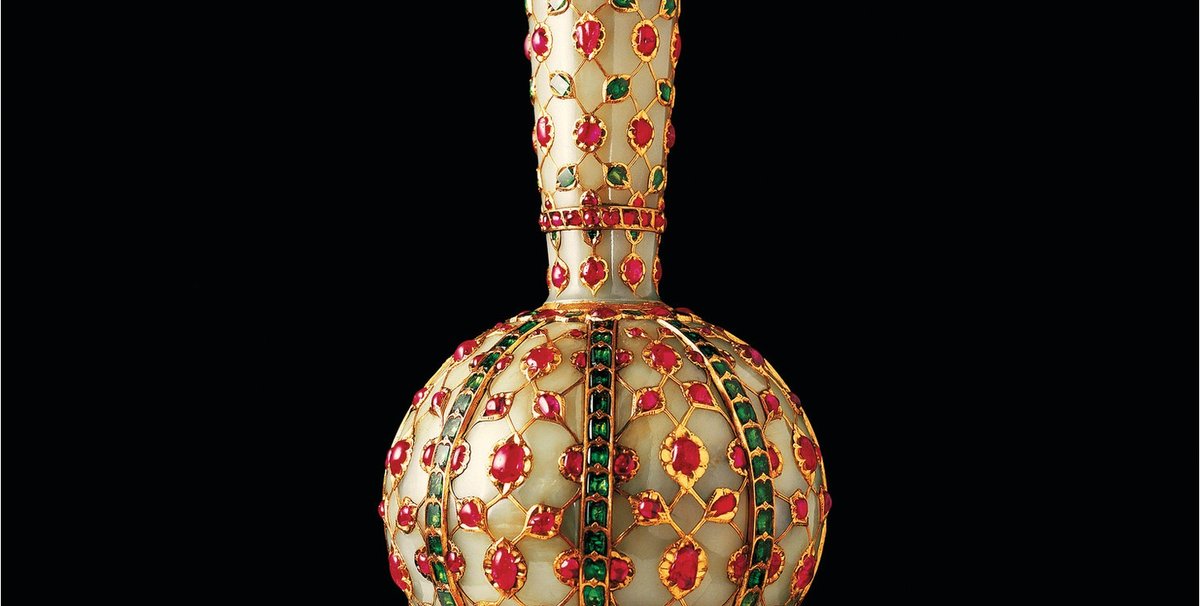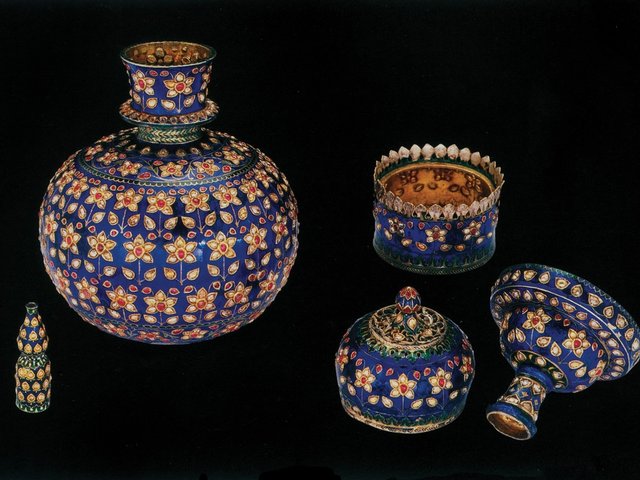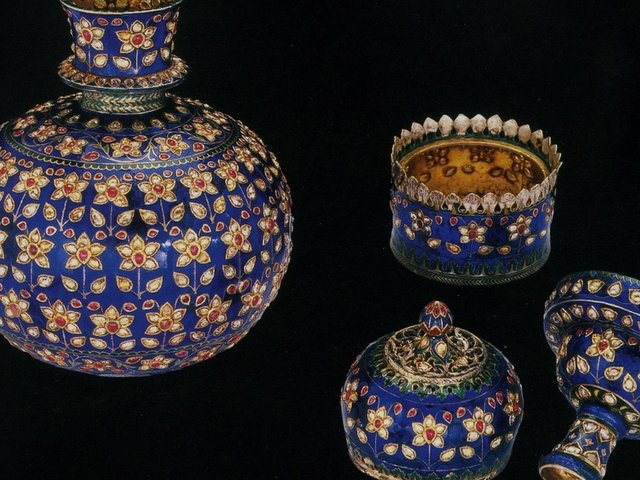Two Mughal treasures brought to Britain by Robert Clive, the commander-in-chief of British India, also known as Clive of India, have been export-deferred again—13 years after an earlier attempt to send them from the UK to Qatar.
When Clive of India’s family consigned a very rare jade-and-gold flask decorated with emeralds and rubies along with a ruby-and-sapphire huqqa pipe to Christie’s in 2004, both were bought by the late Sheikh Saud bin Mohammed Al-Thani, the then culture minister of Qatar. After export licences were applied for, the Victoria and Albert Museum (V&A), which wanted the flask, and the National Trust, which wanted the huqqa, set out to raise money to match the prices. But the Qataris then withdrew the licence applications, blocking any purchase. This led to calls for a reform of export procedures to prevent foreign owners thwarting UK museums.
In January, the UK culture minister, Matt Hancock, announced that new export licences were being deferred on the two treasures, but the prices the UK institutions have to match have more than doubled since the first export application. The flask is now valued at £6m (£2,973,000 in 2004) and the huqqa at £240,000 (£98,000 in 2004).
After the Qataris withdrew the export licence applications in 2005, they were required to keep the objects in the UK and so lent the flask and huqqa to the V&A. Last year, the museum learned that the loan agreement for the two treasures would not be renewed.
Qatar Museums wants to display them in Doha’s Museum of Islamic Art, which opened in 2008. The V&A and the National Trust are now considering whether to try to make matching offers, despite the increased prices. The initial deadlines run to 17 April for the huqqa and 17 May for the flask, although they could be extended.




